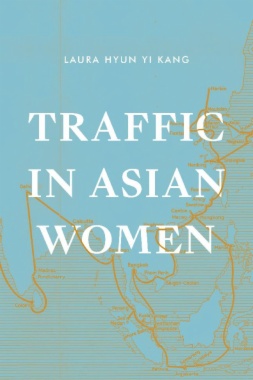In Traffic in Asian Women Laura Hyun Yi Kang demonstrates that the figure of "Asian women" functions as an analytic with which to understand the emergence, decline, and permutation of U.S. power/knowledge at the nexus of capitalism, state power, global governance, and knowledge production throughout the twentieth century. Kang analyzes the establishment, suppression, forgetting, and illegibility of the Japanese military "comfort system" (1932–1945) within that broader geohistorical arc. Although many have upheld the "comfort women" case as exemplary of both the past violation and the contemporary empowerment of Asian women, Kang argues that it has profoundly destabilized the imaginary unity and conceptual demarcation of the category. Kang traces how "Asian women" have been alternately distinguished and effaced as subjects of the traffic in women, sexual slavery, and violence against women. She also explores how specific modes of redress and justice were determined by several overlapping geopolitical and economic changes ranging from U.S.-guided movements of capital across Asia and the end of the Cold War to the emergence of new media technologies that facilitated the global circulation of "comfort women" stories.
- Cover
- Contents
- Acknowledgments����������������������
- Introduction. Traffic in Asian Women�������������������������������������������
- 1. Asian Women as Method?
- 2. Traffic in Women
- 3. Sexual Slavery
- 4. Violence against Women
- 5. Truth Disclosure
- 6. Just Compensation
- 7. Enduring Memorials
- Notes������������
- Bibliography�������������������
- Index������������

